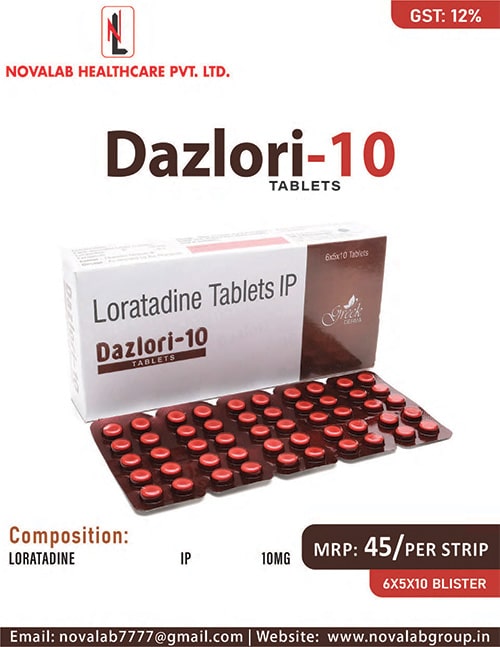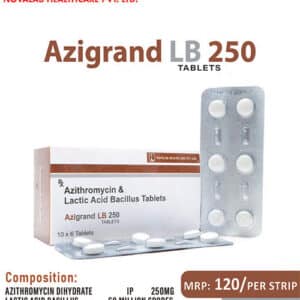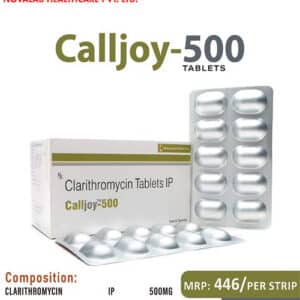
DAZLORI-10
Loratadine 10mg Tablets
Categories: DERMA PRODUCTS, TABLETS / CAPSULES / SOFT GEL
Enquiry about DAZLORI-10

Additional information
| Pack Size | 6x5x10(blister) |
|---|
Related products
We are a research-based pharmaceutical company. The mission of Novalab Healthcare is to improve the health of the Indian community by providing them with quality.
Quick Links
Location
- Plot No-208, Industrial Area Phase 1, Panchkula, Haryana 134113
- Novalab7777@gmail.com
- +91-9570599567
- +91-9115604598
Map
Copyright by © 2025 Novalab Healthcare | Web Development and Marketing By Web Hopers
Contact Us







